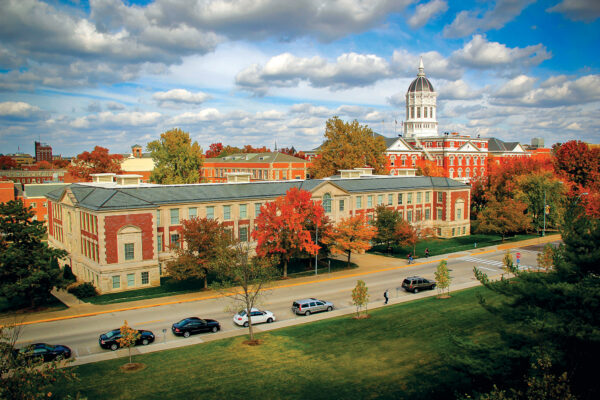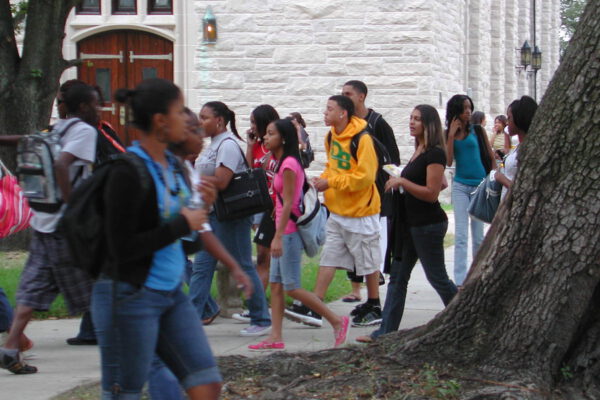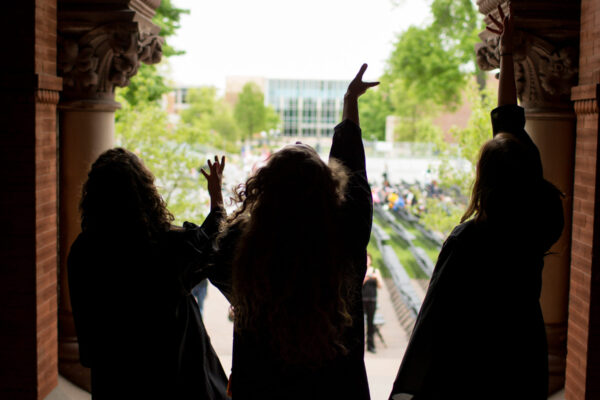By Frederick M. Lawrence
This post is part of ACE’s work on free speech and campus inclusion made possible through generous support from the John S. and James L. Knight Foundation.
We are facing a crisis of speech, a turmoil over how to speak to each other across lines of difference, questioning whether our cherished principles of free expression can exist and do exist. Nowhere is this strain more sharply felt than on our campuses.
Our students sense a lack of clarity as to the principles that apply to this complex topic; so do their mentors and teachers. Outsiders in the blogosphere, anonymous provocateurs across the electronic landscape, seek to undermine their campus communities. And their own fear of hurting or of being hurt understandably creates a chilling effect, not only on speech but also on talking about speech. The institutions of our society where free speech is crucial have entered a new dystopia. There is enormous pressure on students, faculty, and other stakeholders to select from an impoverished choice set: either to restrict the expression of others and self-censor as well, or to vulgarize expression in the name of unfettered debate. It is essential that we reject this false dichotomy and find a way to embrace both robust free expression and civil, respectful discourse on our campuses.

The question of whether speech may be restricted and even proscribed, while critically important, was never meant to bear the full weight of the broader question that confronts our campuses and our country—how best to respond to hateful speech. We must not mistake the immediate issue of whether speech is protected with the ultimate issue of how a community should respond to protected expression that is deeply hurtful to some of its members.
When trying to understand the limits of free expression, we should begin with the institution’s mission. Colleges and universities cover a wide range of models and identities, but share a similar mission—to discover and create knowledge, and to transmit that knowledge through teaching and scholarship for the betterment of local, national, and even international communities. For this mission, free expression and free inquiry are essential. Thus, all speech, including hateful speech, is presumed to be protected.
This presumption, however, is not without its limits. The best way of locating these limits is to focus on the intent of the speaker. That which is intended to communicate, or even provoke or challenge, will be protected. That which is intended to disrupt or threaten may be restricted. Thus, chanting by demonstrators outside a lecture hall or silent protest within the hall is protected. Making it impossible to hear the speaker inside the venue may be restricted.
What about speech that is taken to be hateful? Again, intent is critical. When I was a trustee at Williams College (MA), a Jewish student complained that a faux eviction notice had been placed on her dorm room door, imitating the notices placed on Palestinian homes that are to be demolished by Israeli authorities due to the connection between residents and acts of terrorism. When the college president asked what should be done concerning those responsible for the notice, I responded that it depended on their intent. In what way were the notices posted? Were only the leaders of a Jewish student organization targeted?
As it turned out, every student in that dorm, regardless of affiliation, received one. That the complaining student honestly felt intimidated is not the issue. The issue is the intent of those who posted the notices—to intimidate and threaten individual Jewish students or to make a broader dramatic statement about the Israel- Palestine conflict.
This broad protection of expression is not inconsistent with the recognition that the activity can be hurtful, sometimes deeply so. Free expression exacts a cost on a community. Given the mission of a university, this is a cost worth bearing. But we must be mindful that the cost is not equally distributed; some members of the community bear more of the harm of hateful speech.
This understanding is not an argument for repressing speech, but it does create an imperative to respond to hateful speech. Justice Louis Brandeis taught that the answer to bad speech, in the absence of incitement to imminent lawless activity, is not “enforced silence” but rather “more speech.” What was a legal formula in Brandeis’s time has become a moral obligation in ours—one that shows the way forward.
Campus leaders must respond to hateful speech clearly, articulating the institution’s values of inclusion, decency, and dignity. In 2017, for example, President Kent Fuchs and President Michael Young of the University of Florida and Texas A&M University, respectively, effectively handled campus visits by white supremacists by doing just this. Fuchs said that his university “has been clear and consistent in its denunciation of all hate speech and racism, and in particular the racist speech and white nationalist values of [white supremacist leader Richard] Spencer.” A wise president is careful not to weigh in on every controversy, but by being thoughtful and deliberate, campus leaders can protect free speech while forcefully expressing the institution’s values.
In addition to responding to instances of hateful speech, university leaders must proactively seek to create a campus climate that protects robust free expression while maintaining an atmosphere of civility. As a guide for creating such a climate, and for promoting vigorous civility, three principles provide a useful framework.
- Assume the best in each other and do not suspect the motives of those with whom we disagree.
- Disagree without delegitimization.
- Look for common ground even when we disagree, and articulate that common ground as part of the discussion.
The first principle—assuming the best and not suspecting motives—is not a naïve assumption that there are not questionable motives; it represents a critically important starting point in campus debate. If instead of this starting point we focus on the motives of others, we avoid engagement with their ideas and arguments. Moreover, the essence of an academic community is based on the idea that its members are engaged in a process of discovering and creating knowledge and in transmitting that knowledge to others, and we presume those with whom we discuss and debate share a commitment to this idea. In some instances, this presumption will not apply. But we start by assuming good faith.
The second principle—disagreeing without delegitimizing—is particularly significant in a time of hyperpolarization. Delegitimization is when we define our opponent as being outside of the community, instead of contending with another person within the community. It is community-destroying and entirely inconsistent with a commitment to learning, discussing, and debating.
The third principle—the search for common ground—proposes that discussions and debates that take place on campus consciously search for and articulate shared points of agreement. In some cases, this search will lead to a shared set of conclusions. In others, it will be sufficient that there is a shared commitment to the process of intellectual engagement and free inquiry.
There are many examples of such a shared commitment—the close friendship between Supreme Court Justices Ruth Bader Ginsburg and the late Antonin Scalia comes to mind. Another extraordinary example is the intellectual bond between Professors Charles L. Black Jr. and Alexander Bickel.
Black was a legendary figure in constitutional law at Yale Law School (CT). He was one of the architects of the legal arguments attacking segregation and an advocate of judicial activism. His colleague, the equally legendary Bickel, argued for judicial restraint. When Bickel passed away, Black wrote in tribute that they had “agreed in everything but our opinions.” It is as powerful a statement of respectful, even loving, disagreement as I know.
If we have lost the ability to say to those with whom we disagree that we “agree in everything but our opinions,” we have lost something very precious and, perhaps, irreplaceable. But if we can do so, we will be building the most important kind of community there is—and one worthy of the great shared mission of America’s colleges and universities.
If you have any questions or comments about this blog post, please contact us.


